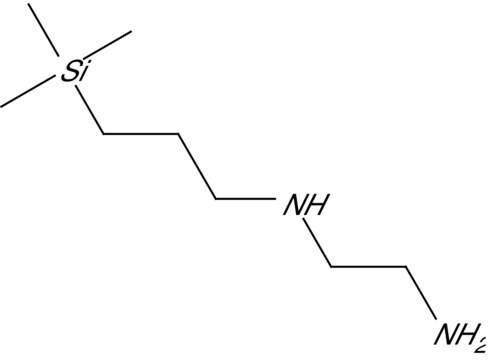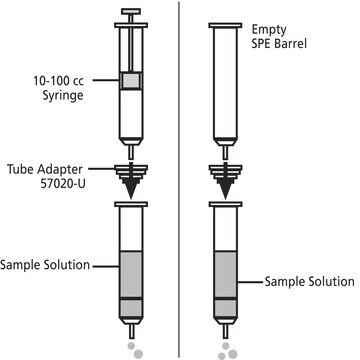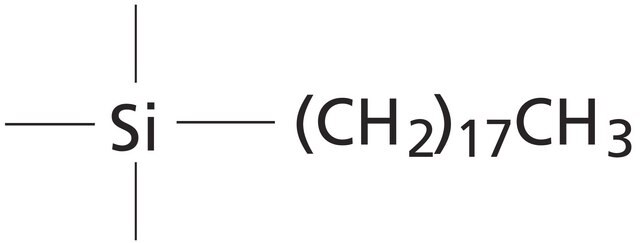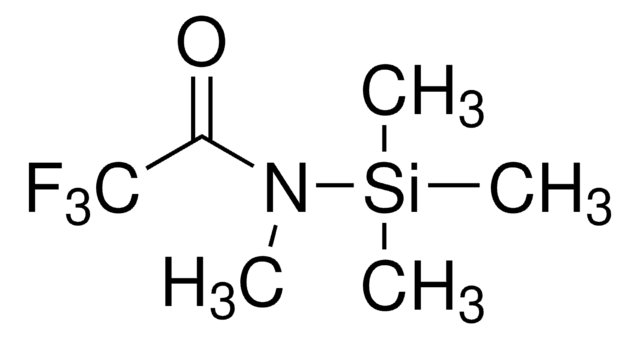53210-U
SupelMIP® Chloramphenicol solid phase extraction (SPE) Tube
bed wt. 25 mg, volume 10 mL , LRC, pk of 50
About This Item
Recommended Products
product name
SupelMIP® SPE - Chloramphenicol, bed wt. 25 mg, volume 10 mL , LRC, pk of 50
material
polypropylene tube
product line
SupelMIP®
composition
bed wt., 25 mg
packaging
pk of 50
technique(s)
solid phase extraction (SPE): suitable
volume
10 mL , LRC
application(s)
food and beverages
Looking for similar products? Visit Product Comparison Guide
Related Categories
General description
The SupelMIP SPE line consist s of highly cross-linked polymers that are engineered to extract a single analyte of interest or a class of structurally related analytes with an extremely high degree of selectivity. This is possible because selectivity is introduced during MIP synthesis in which a template molecule, designed to mimic the analyte, guides the formation of specific cavities or imprints that are sterically and chemically complementary to the analyte(s) of interest.
By careful design of the imprinting site, either by molecular modeling, experimental design, or screening methods, the binding cavities can be engineered to offer multiple interaction points with the analyte(s) of interest. This leads to a stronger interaction between the solid-phase and the analyte(s). As a consequence, harsher wash conditions can be tolerated during SPE methodology resulting in cleaner extracts. Because extraction selectivity is significantly improved, lower background is observed allowing analysts to achieve lower limits of detection.
Visit www.sigma-aldrich.com/supelmip to learn more.
Application
Chloramphenicol is a broad-spectrum antibiotic that is currently banned by a number of countries including the EU, the US, and Canada. This MIP phase and associated method offer a simple, efficient, and highly selective extraction method for quantiting chloramphenicol in food products and biological matrices. Detection limits well below the minim required performance limit (MPRL) are achieved consistently.
Features and Benefits
- Highly selective SPE for trace analysis in complex matrices
- Achieve lower detection limits
- Significant time and cost savings
- Improved MS-compatibility
Legal Information
Signal Word
Danger
Hazard Statements
Precautionary Statements
Hazard Classifications
Acute Tox. 4 Oral - Aquatic Acute 1 - Aquatic Chronic 2 - Eye Dam. 1 - STOT SE 3
Target Organs
Respiratory system
Storage Class Code
10 - Combustible liquids
WGK
WGK 1
Flash Point(F)
200.3 °F
Flash Point(C)
93.5 °C
Choose from one of the most recent versions:
Already Own This Product?
Find documentation for the products that you have recently purchased in the Document Library.
Articles
The method for determination of low concentrations of chloramphenicol in bovine and porcine urine was developed. Sample cleanup was performed by Molecular Imprinted Polymer (MIP) columns. Confirmatory analyses were conducted using GC/MS-NCI after derivatisation (silylation). The described method was fully validated according to CD 2002/657/EC, CCa was 0.06 ng/mL, CCb was 0.1 ng/mL. This method is considerably robust and allows to process even very dirty samples. The described procedure is very simple, low-time-consuming, provides high throughput of examinated samples, and could be used for routine screening and confirmatory analyses as well.
Related Content
SupelMIP SPE is based on molecularly imprinted polymer (MIP) technology. Each SupelMIP phase offers tailor-made selectivity for the extraction of trace analytes in complex matrixes.
Chromatograms
application for SPE, application for LC-MSOur team of scientists has experience in all areas of research including Life Science, Material Science, Chemical Synthesis, Chromatography, Analytical and many others.
Contact Technical Service











